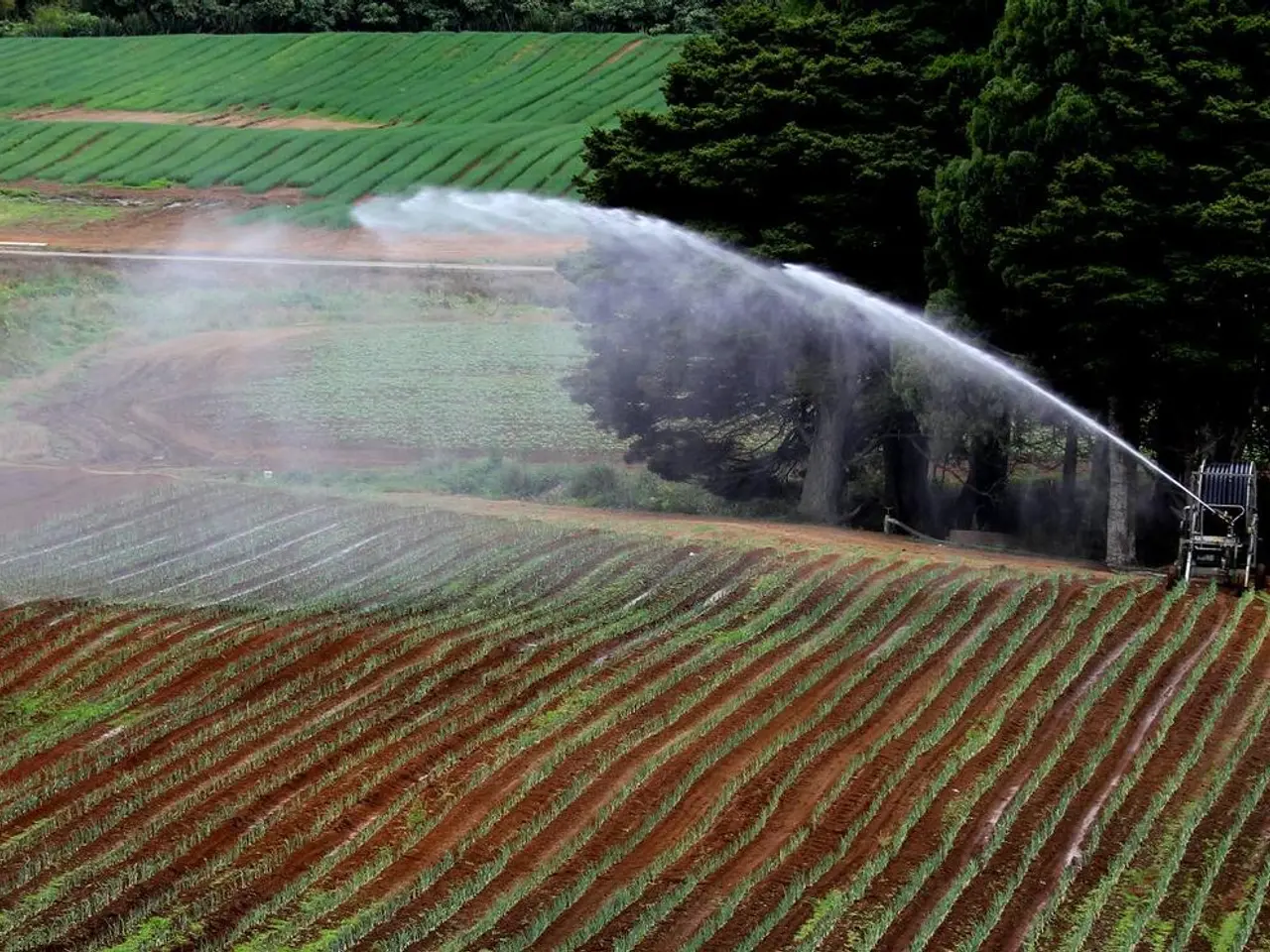Empowering Small-Scale Farmers through Innovation and Sustainable Practices
Delving into Miniature Agricultural Ventures: An Insight
Small-scale farmers face numerous challenges in today's rapidly changing global landscape. Issues such as insecure land rights, land fragmentation, and land tenure problems make it difficult for these farmers to access the land they need to sustain their livelihoods. However, innovative approaches are being adopted to enhance the resilience, sustainability, and market opportunities for smallholder farmers.
Precision Agriculture and Digital Tools
One such approach is the integration of precision agriculture and digital tools. The use of Internet of Things (IoT) sensors, drones, AI-driven crop management platforms, and satellite data enables smallholders to make data-driven decisions regarding irrigation, fertilization, and pest control. This optimization of inputs reduces waste, increases yield and profitability by 10–20%, and lowers input costs up to 30%. Mobile apps providing weather forecasts, real-time market prices, and crop advisories empower farmers to adapt quickly to environmental and market changes.
Regenerative and Carbon Farming Practices
Regenerative and carbon farming practices are another key approach. Techniques like cover cropping, no-till farming, and reduced tillage rebuild soil health, sequester carbon, and enhance climate resilience. Carbon farming incentives enable smallholders to earn revenue from carbon credits, making sustainable practices economically viable.
Diversification and Agroforestry
Diversification and agroforestry are also crucial strategies. Integrating diversified crops, agroforestry, and smart livestock farming (with wearable sensors and automated systems) increases biodiversity, reduces risk, and meets rising consumer demands for sustainable and ethically produced food.
Improved Market Access
Improved market access is another important factor. Online platforms connect farmers directly with consumers and global markets, bypassing intermediaries to increase profits. Subscription models and fair-trade certification strengthen farmer-consumer relationships and market stature. Cooperatives enhance bargaining power and access to credit and inputs.
Climate-Resilient Inputs and Infrastructure
Access to quality, climate-resilient seeds, community seed banks, solar-powered or low-cost drip irrigation systems supports adaptation to climate stresses and improves productivity sustainably.
These innovations combine traditional knowledge with modern technology and sustainable practices, fostering economic growth, environmental stewardship, and social equity for smallholder farmers.
Threats to Small-Scale Farming
Despite these advancements, small-scale farming systems continue to face threats such as soil erosion, deforestation, and water scarcity, which exacerbate environmental degradation and ecosystem vulnerability. Poor infrastructure, inadequate roads, and transportation networks impede market access, supply chain efficiency, and trade opportunities. Unfair trade practices, market monopolies, and price volatility disadvantage small-scale farmers, reducing their bargaining power and profitability. Limited access to credit, insurance, and financial services hinders investment, productivity, and resilience in small-scale farming operations.
Overcoming Challenges and Seizing Opportunities
By embracing agroecological principles, participatory approaches, and innovative solutions, small-scale farmers can overcome these challenges, seize opportunities, and contribute to a more equitable, resilient, and sustainable food system. Small-scale farming initiatives often prioritize diversified cropping systems, agroecological practices, and community-based approaches.
Agroecotourism and farm-based tourism diversify income sources for small-scale farmers, providing additional revenue streams and promoting rural development and cultural exchange. Digital platforms, mobile applications, and e-extension services provide small-scale farmers with access to agricultural information, market prices, weather forecasts, and extension support, empowering them to make informed decisions and adopt best practices. Farmer cooperatives and collective marketing initiatives enable small-scale farmers to pool resources, negotiate better prices, and access markets and value chains collectively, enhancing their competitiveness and market opportunities.
In conclusion, small-scale farmers enhance resilience and market opportunities by leveraging precision ag technologies, adopting regenerative practices, diversifying production, and accessing digital platforms that provide knowledge, finance, and direct-to-consumer markets, all supported by inclusive policies and capacity building. Small-scale farming supports the livelihoods of millions of rural households, generating income, employment, and economic opportunities in remote and marginalized areas. By embracing agroecological principles, participatory approaches, and innovative solutions, small-scale farmers can overcome challenges, seize opportunities, and contribute to a more equitable, resilient, and sustainable food system.
[1] FAO (2020). Small-scale farmers and innovation: challenges and opportunities. [Online]. Available: http://www.fao.org/3/ca9616en/ca9616en.pdf
[2] IFAD (2019). Innovations for smallholder agriculture. [Online]. Available: https://www.ifad.org/en/innovations-smallholder-agriculture
[3] Gates Foundation (2018). Precision agriculture for smallholders. [Online]. Available: https://www.gatesnotebook.com/precision-agriculture-for-smallholders
[4] World Bank (2018). Digital agriculture for development. [Online]. Available: https://www.worldbank.org/en/topic/agriculture/brief/digital-agriculture-for-development
[5] CGIAR (2018). Climate-smart agriculture. [Online]. Available: https://www.cgiar.org/our-work/climate-smart-agriculture/
In the realm of economic development, small-scale farmers could benefit by extending their focus beyond agriculture into sectors like finance and transportation. This could involve seeking investments or loans from financial institutions to enhance their farming operations, or improving infrastructure in rural areas to ensure efficient transportation of goods to markets.
For instance, the integration of precision agriculture technologies could be combined with digital financial services, enabling smallholders to manage their finances as efficiently as their crops. Additionally, better roads and transportation networks could help small-scale farmers access markets more quickly and reduce the costs associated with traveling long distances. By diversifying their activities into finance and transportation, small-scale farmers may be able to overcome the challenges they face more effectively and seize new opportunities within these sectors.




